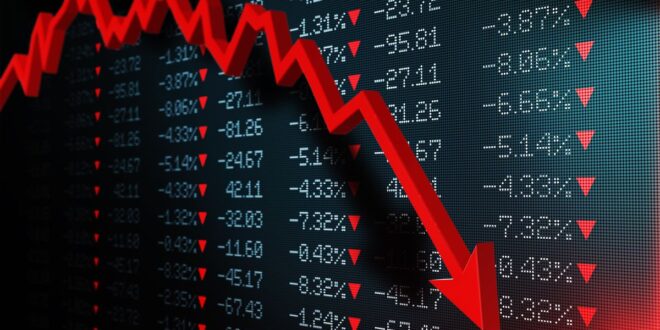Following a contraction of 3.62 percent in its Gross Domestic Products (GDP) in the third quarter of 2020, Nigeria has slipped into recession once again.
The National Bureau of Statistics (NBS), which made the disclosure on Saturday, said this is the second consecutive quarterly GDP decline since the recession of 2016.
According to the agency, the cumulative GDP for the first nine months of 2020, therefore, is at -2.48 percent.
The NBS report read: “Nigeria’s gross domestic product (GDP) recorded a growth rate of –3.62% (year-on-year) in real terms in the third quarter of 2020.
“Cumulatively, the economy has contracted by -2.48%. While this represents an improvement of 2.48% points over the –6.10% growth rate recorded in the preceding quarter (Q2 2020), it also indicates that two consecutive quarters of negative growth have been recorded in 2020.”
“Furthermore, growth in Q3 2020 was slower by 5.90% points when compared to the third quarter of 2019 which recorded a real growth rate of 2.28% year on year.
“The performance of the economy in Q3 2020 reflected residual effects of the restrictions to movement and economic activity implemented across the country in early Q2 in response to the COVID-19 pandemic.
“As these restrictions were lifted, businesses re-opened and international travel and trading activities resumed, some economic activities have returned to positive growth.
“A total of 18 economic activities recorded positive growth in Q3 2020, compared to 13 activities in Q2 2020,” the report said.
The NBS further explained that, “During the quarter under review, aggregate GDP stood at N39.089 trillion in nominal terms.
“This performance was 3.39% higher when compared to the third quarter of 2019 which recorded an aggregate of N37.806 trillion.
“This rate was, however, lower relative to growth recorded in the third quarter of 2019 by –9.91% points but higher than the preceeding quarter by 6.19% points. For clarity, the Nigerian economy has been broadly classified into the oil and non-oil sectors.”
 The Commerce Africa African Reneissance
The Commerce Africa African Reneissance




